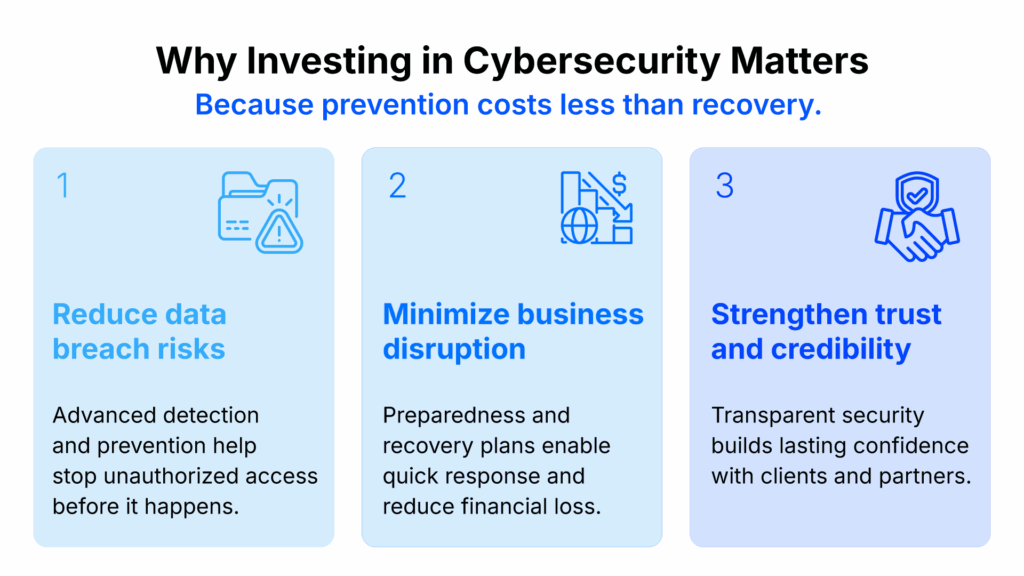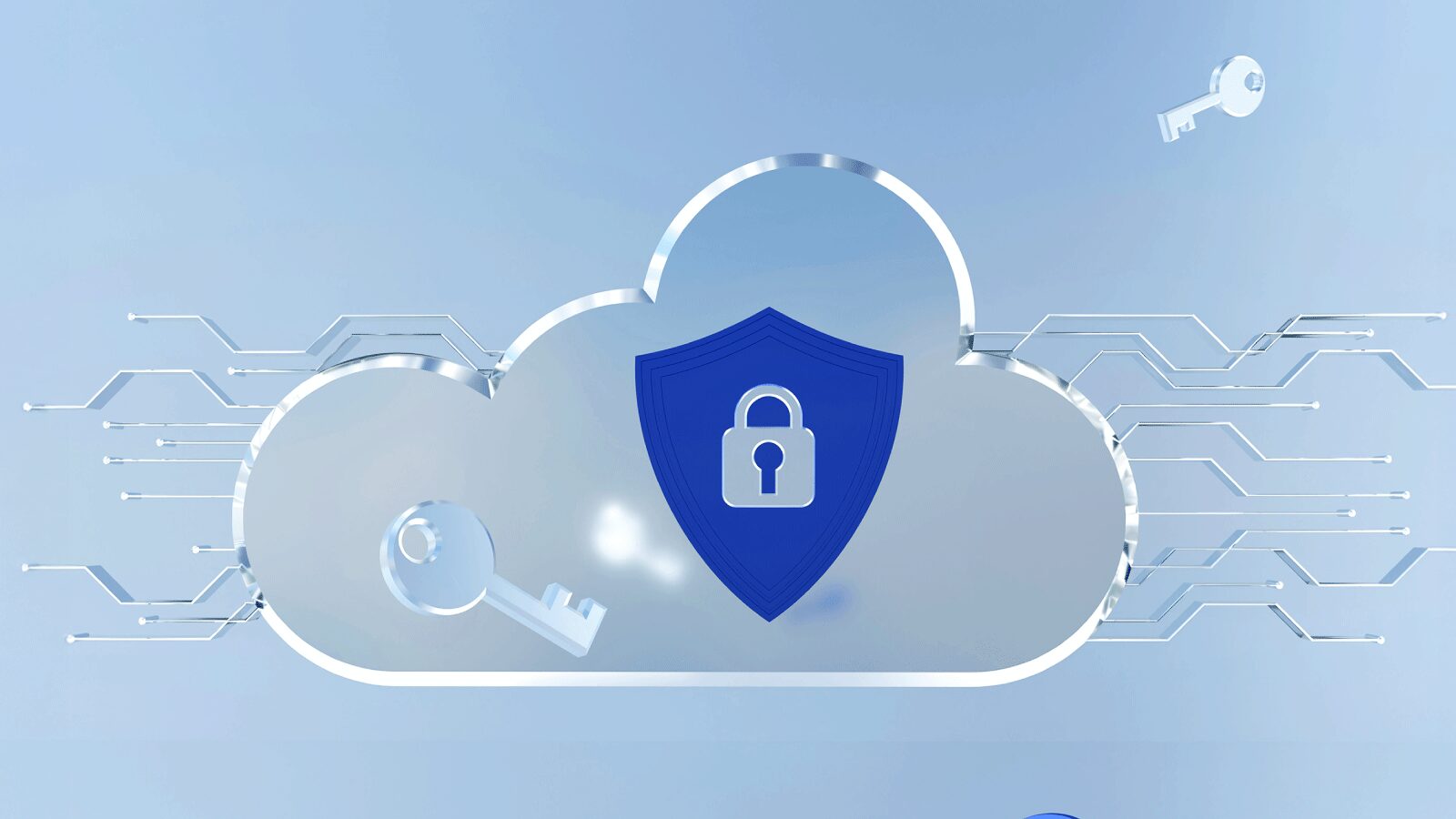
In today’s digital economy, data lies at the core of every enterprise’s value creation.
Yet as technology evolves — enabling faster storage, access, and analysis through digital systems and the cloud — the exposure to cyberattacks and data breaches has grown exponentially.
This shifting landscape has pushed organizations to rethink not just how they collect and manage information, but how well they can protect it.
With Thailand’s Personal Data Protection Act (PDPA) B.E. 2562, modeled after the EU’s GDPR, compliance alone is no longer enough. Businesses must develop the capabilities and resilience needed to safeguard data, maintain trust, and operate responsibly in a digital-first world.
Before building these capabilities, it is essential to understand what PDPA entails — and how Cybersecurity serves as the foundation for achieving and sustaining compliance.
What is PDPA?
The Personal Data Protection Act (PDPA) is Thailand’s data privacy law that defines the rights and responsibilities of both Data Controllers and Data Subjects.
It ensures that the collection, use, and disclosure of personal data are conducted lawfully, transparently, and securely.
Under this regulation, organizations are required to establish appropriate technical and organizational measures to protect personal data from loss, unauthorized access, misuse, or disclosure. They are also liable for any data breaches resulting from their own negligence.
In essence, PDPA is not merely a regulatory requirement — it represents a standard of corporate accountability, reflecting an organization’s commitment to data protection, transparency, and customer trust.
What Happens If an Organization Fails to Comply with PDPA
Non-compliance with PDPA can expose organizations to significant legal, financial, and reputational risks.
The penalties imposed under the Act include:
- Civil penalties: Compensation for actual damages and up to twice the amount of the proven losses.
- Criminal penalties: Imprisonment for up to one year, fines up to THB 1,000,000, or both.
- Administrative penalties: Fines ranging from THB 1,000,000 to 5,000,000, depending on the case.
A notable case in Thailand involved a large private company that lacked sufficient access control and authorization measures, resulting in a customer data breach. The company was fined THB 7 million, marking one of the first administrative rulings under PDPA.
This case serves as a clear reminder that weak data protection measures are more than a compliance gap — they are a business vulnerability with tangible financial impact.
How Cybersecurity Supports PDPA Compliance

Data breaches can cause more than regulatory penalties — they can undermine customer confidence and disrupt business continuity.
A strong Cybersecurity foundation is therefore not only a technological safeguard but also a critical enabler of PDPA compliance.
While many organizations have invested in digital transformation to improve efficiency, lacking a robust Cybersecurity strategy can still expose them to risk.
Cybersecurity measures directly support PDPA compliance through initiatives such as:
- Cybersecurity Assessment: Identify vulnerabilities and assess the organization’s security posture to ensure compliance with global standards.
- Incident Response Planning: Define clear roles, responsibilities, and procedures to effectively manage data breaches.
- Security Awareness Training: Educate employees on safe data handling practices to minimize human error and reinforce a culture of security awareness.
- Data Breach Notification Process: Establish a standardized reporting framework to ensure timely response and compliance with PDPA requirements.
In short, Cybersecurity is the operational backbone that turns PDPA compliance from policy into practice — across people, processes, and technology.
Why Investing in Cybersecurity Matters
Investing in Cybersecurity is not merely a cost of compliance — it’s an investment in business resilience, reputation, and trust.

Ultimately, Cybersecurity is not just about meeting PDPA obligations — it’s about protecting the future of your business.
The Risks of PDPA Compliance Without Strong Cybersecurity
Even if an organization complies with PDPA on paper, insufficient Cybersecurity measures can still leave it vulnerable to major risks:
- Cyberattacks and data breaches: Weak defenses make organizations an easy target for ransomware, phishing, or malware attacks, leading to unauthorized access and data breaches.
- High recovery and downtime costs: Data breaches require costly recovery and remediation efforts, often causing prolonged business disruption and lost revenue.
- Reputation and trust erosion: A single data breach can shatter customer and stakeholder trust, damaging a brand’s reputation built over the years.
- Lost business opportunities: Companies with poor Cybersecurity maturity may lose eligibility to partner with firms or sectors that require strict data protection compliance.
In short, PDPA defines compliance, but Cybersecurity defines credibility. Together, they form the foundation of responsible and sustainable business in the digital era.
Stay Secure with Bluebik Titans — Making Every Cybersecurity Investment Count
Start Right with a Cyber Health Check: Cybersecurity investments without a clear plan can drain resources without delivering meaningful results.
Bluebik Titans offers a comprehensive Cyber Health Check to assess your organization’s current Cybersecurity posture — helping you plan strategically, optimize budgets, and establish a sustainable foundation for long-term protection.
Strengthen Readiness with Real-World Simulation (Cyber Drill Program): Preparedness is the best defense. Bluebik Titans’ Cyber Drill Program provides realistic simulation exercises that replicate cyberattack scenarios.
The program helps teams understand their roles, improve response coordination, and enhance confidence in managing real-world data breach and cyber-incident responses effectively.
Conclusion
PDPA is where data protection begins — but Cybersecurity is what sustains it.
Organizations that invest in robust Cybersecurity today are not just preventing risks; they are building digital trust, ensuring compliance, and securing long-term growth in an increasingly connected world.












![Thumbnail [Post Event] HOW](https://bluebik.com/wp-content/uploads/2025/12/Thumbnail-Post-Event-HOW.png)